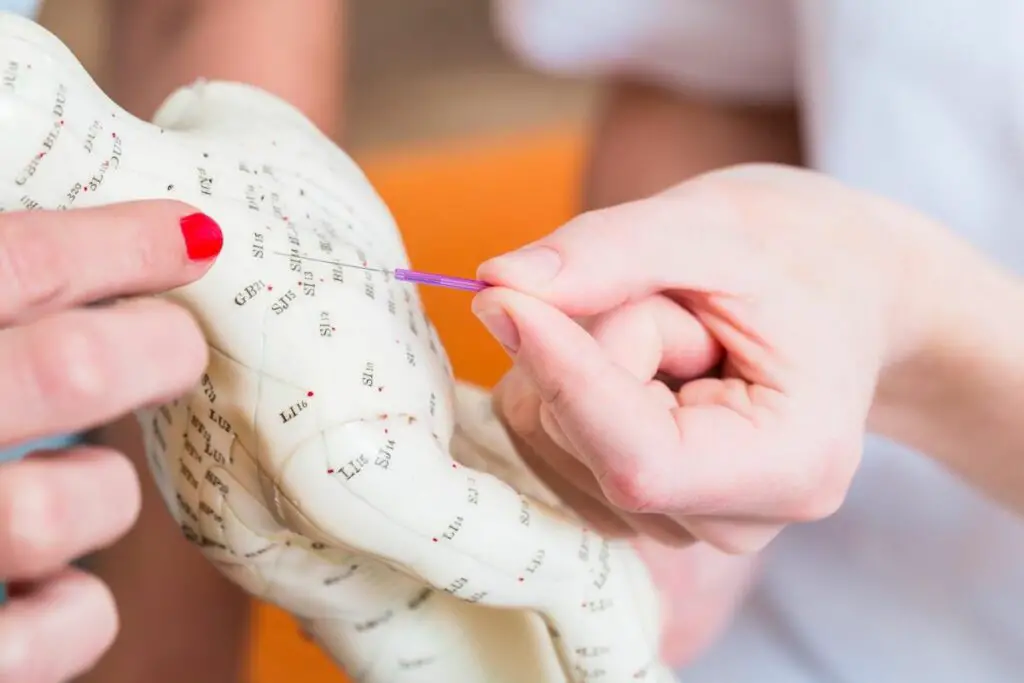Qi deficiency is a concept from Traditional Chinese Medicine (TCM) that suggests a type of energy imbalance within your body. Qi, pronounced “chee,” is considered the vital life force that circulates through the body, instrumental to overall health and well-being.
If you’re feeling consistently tired, weak, or have a weakened immune system, it’s possible that you’re experiencing signs of qi deficiency.
Addressing a qi deficiency involves a holistic approach because, in the framework of TCM, your qi is influenced by diet, lifestyle, and emotional state.
Incorporating certain foods that are believed to strengthen qi, such as whole grains, root vegetables, and leafy greens, can be helpful.
Moreover, practices like acupuncture, tai chi, and qigong are often recommended to support the flow of qi through the body.
Exploring ways to enhance and balance qi could offer a refreshing perspective on personal wellbeing.
Understanding Qi Deficiency
Qi deficiency is a concept from Traditional Chinese Medicine (TCM) indicating that your body’s vital energy is low. Recognizing the signs and understanding the perspective of TCM can guide you toward better health.
Traditional Chinese Medicine Perspective
In TCM, qi is the life force that flows through your body, essential for overall health. Qi is believed to be part of every living thing, and its balance is crucial to maintain your physical and emotional well-being.
If your qi is deficient, your body’s ability to perform its various functions could be compromised. According to Healthline, this could be due to an imbalance caused by various factors such as diet, stress, or illness.
Symptoms and Signs
The signs of qi deficiency manifest as physical or mental symptoms, varying from person to person.
Some common indicators include:
- Fatigue: feeling tired even after a good night’s sleep.
- Digestive issues: poor digestion, bloating, or irregular bowel movements.
- Weakness: a general sense of weakness or lack of strength.
- Sweating: spontaneous sweating without physical exertion.
If you notice these symptoms, they could be signs that your qi is not at optimal levels. It is important to pay attention to these indicators, as they provide clues about your health that can guide potential treatment options.

Dietary Recommendations
Proper nutrition is vital in addressing Qi deficiency. Embodying a holistic approach to eating, focusing not just on the ‘what’ but also on the ‘how’ of your dietary habits, can deeply influence your body’s energy levels.
Balanced Diet for Qi
Your diet is a cornerstone in maintaining balanced Qi. Start by eating regular meals, ideally at the same times daily, to establish a steady flow of energy.
Make sure to consume a variety of foods including carbohydrates, proteins, and fats to support overall vitality.
According to a comprehensive guide on Qi deficiency, smaller, frequent meals can aid in preventing energy dips throughout the day.
Qi-Boosting Foods
Incorporating specific qi-boosting foods can help enhance your energy.
These foods typically include those that are warm and cooked rather than cold and raw, as they require less energy for your body to digest. For instance:
- Grains like brown rice and oats are excellent for sustaining Qi.
- Root vegetables such as sweet potatoes and carrots provide grounding energy.
- Proteins like chicken, fish, and legumes are essential for building Qi.
Steering clear of sugar-laden and highly processed foods is also recommended, as per a resource on Qi deficiency treatment. These can drain your Qi rather than nourish it.
Choosing slow-cooked stews and soups can be particularly nourishing and are easier to digest, aiding in the enhancement of Qi.
Remember, these modifications are not just about individual ingredients but also about fostering mindful eating practices that support your body’s Qi.
Lifestyle Changes
Adopting certain lifestyle modifications can significantly improve your qi balance. These changes focus on managing stress levels and incorporating regular physical activity, both essential for maintaining your vital energy flow.
Stress Management
Stress can block or deplete your qi, leading to energy imbalances. Here are some targeted strategies to help you manage stress:
- Practice Mindfulness: Engaging in mindfulness techniques like meditation or deep-breathing exercises can help calm your mind and enhance your qi flow.
- Set Realistic Goals: Avoid overcommitment by setting achievable goals to reduce overwhelm and maintain a better energy balance.
Regular Physical Activity
Physical activity is crucial for stimulating the flow of qi and preventing stagnation. Consider these tips:
- Daily Exercises: Simple activities such as walking, swimming, or dancing can be especially beneficial in supporting your qi.
- Tailored Routines: Depending on your fitness level, exercises should balance exertion with relaxation to prevent qi depletion. Choose routines that invigorate yet are not excessively draining.

Acupuncture and Massage
In addressing qi deficiency, acupuncture and massage can play crucial roles. These therapies aim to enhance your energy flow and alleviate symptoms associated with imbalances.
Acupuncture Techniques
Acupuncture involves the insertion of very fine needles into specific points on your body, known as acupoints, to stimulate energy flow and balance your qi.
Key techniques include:
- Manual Acupuncture: The classic form where needles are manually manipulated.
- Electroacupuncture: A gentle electrical current passes through the needles for more stimulation.
Therapeutic Massage
Therapeutic massage, such as Tui Na, focuses on the same acupoints as acupuncture but uses manual manipulation.
Benefits of this massage include:
- Stress Reduction: Helps relax your muscles and mind.
- Enhance Circulation: Promotes better energy flow throughout your body.
Regular sessions may help maintain a more balanced and free-flowing qi.
